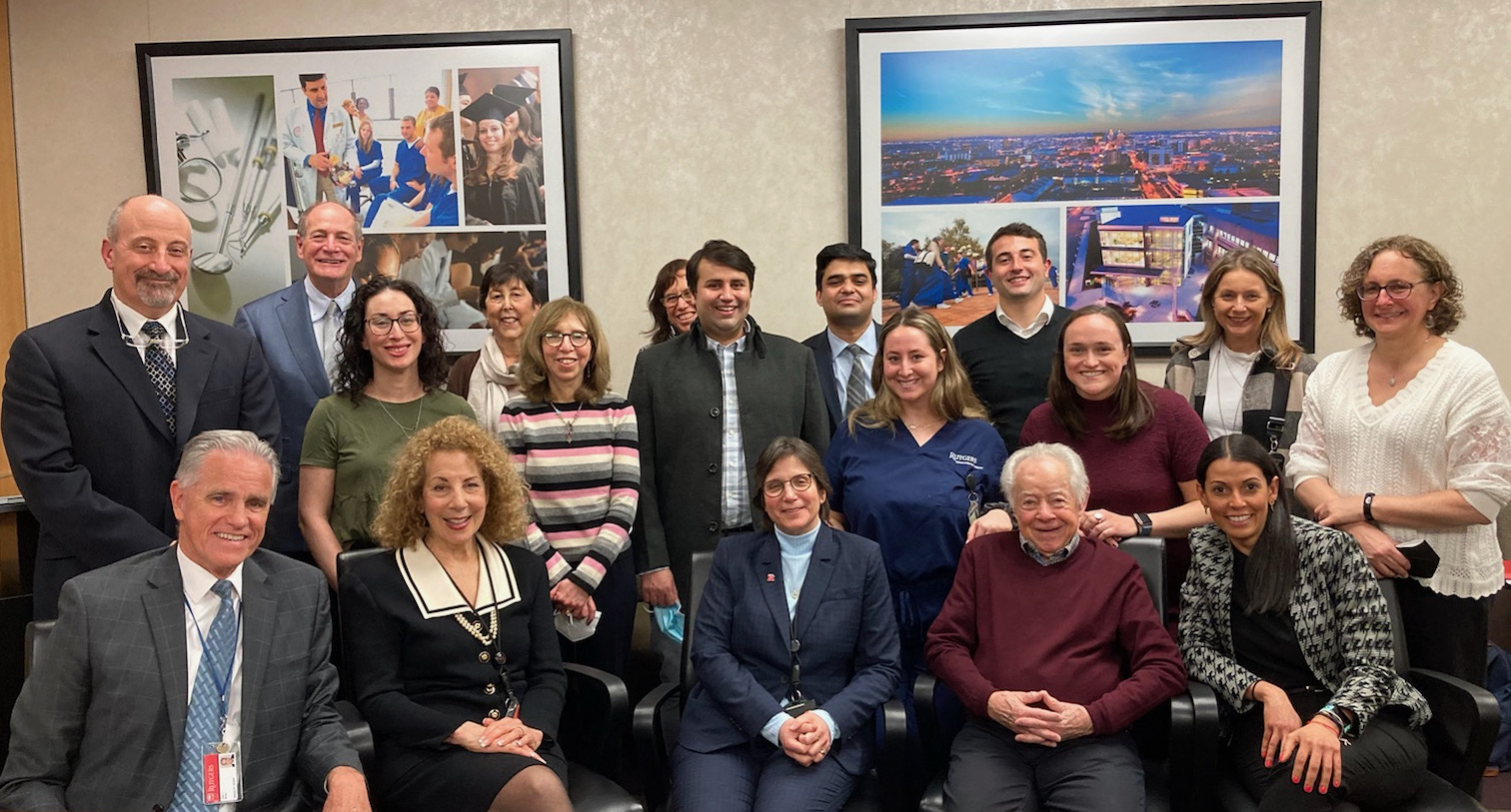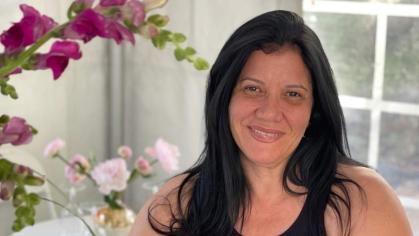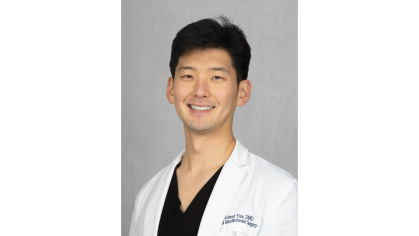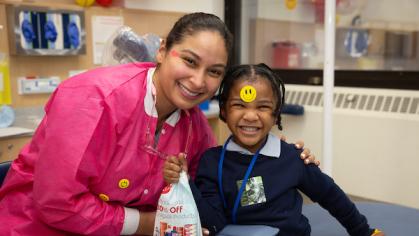RSDM Professor Doubles Pledge for Holocaust Survivor Dental Program
 RSDM’s Holocaust survivor program has surpassed expectations with its patient-centered care. Since the program’s inauguration in October 2020, more than 40 survivors have been treated.
RSDM’s Holocaust survivor program has surpassed expectations with its patient-centered care. Since the program’s inauguration in October 2020, more than 40 survivors have been treated.
“It’s more incredible than anything we could have imagined,” said Deborah Rosen, community program coordinator with the Jewish Federation of Greater MetroWest NJ.
In 2019, the federation spread the word that it was seeking dentists to provide complimentary dental care to Holocaust survivors. RSDM Periodontics Professor Howard Drew, D.M.D., seized the opportunity. “My wife Ina and I are honored to fund such a meaningful program!” Drew said.
When federation members toured RSDM’s facility last month, Chief Operating Officer Andrea West announced that the Drews had doubled their pledge, to $200,000. “Ina and I are fully committed to this program,” Drew said. “Nothing would make us happier than to continue to provide funding as more survivors seek treatment.”
While Dr. Drew was motivated by his profession, the decision to fund the project was also deeply personal. His 96-year-old mother, Esther, and late father, Martin, both endured years of concentration camps during World War II. His parents met in a displaced persons camp at the end of the war and were happily married for 49 years.
In partnership with the federation, RSDM developed a program that entails specialized training of faculty and students to treat Holocaust survivors. It includes a dental navigator protocol to help patients schedule appointments and get answers to questions. The program removes any financial or procedural stresses, Drew noted.
Faculty initially underwent person-centered, trauma-informed care (PCTI) training provided by the federation. Nearly 240 third- and fourth-year D.M.D. candidates went through the PCTI training, and RSDM recently incorporated it into the curriculum, West said. Among other things, PCTI teaches students how to navigate conversations with Holocaust survivors with thoughtfulness and sensitivity.
“We want to treat these patients with the utmost respect and admiration,” Drew said. “Values you learn through this program make you a better person and a better clinician.”
“One of the best things about the Holocaust project is that it has introduced faculty, staff and students to the history of the Holocaust through the lens of the survivors,” Drew said. He noted that throughout childhood, his father had been hesitant to discuss the Holocaust, likely to shield him and his siblings from the horrific reality.
An estimated 80,000 Holocaust survivors resided in the U.S. as of 2019, according to the Jewish Federations of North America. The majority are aged 85 and older, and nearly 35% live below the poverty level, the Administration for Community Living reported. Social isolation, poor health, and depression are common among the population.
When patients arrive for care, “they get VIP-treatment,” he said. The school’s atmosphere is welcoming. Patients “really light up around the youthful residents and D.M.D. candidates.” One of the program’s goals is to alleviate the survivors’ feeling of isolation, he noted.
Because the Holocaust deprived survivors of adequate food and dental care for years, “a lot of the cases we see are incredibly challenging,” Drew said. RSDM has a postdoctoral center where specialists consult and collaborate on treatment plans. Having a centralized treatment space eases the burden for patients, many of whom have limited mobility.
While D.M.D candidates perform basic treatment, complex procedures are delegated to residents in dental specialties, and all care is supervised by faculty, Drew said.
Holocaust survivors interested in treatment at RSDM are encouraged to call the dedicated phone line, 973-972-5304 “and begin personalized and thoughtful treatment,” Drew said.
###



